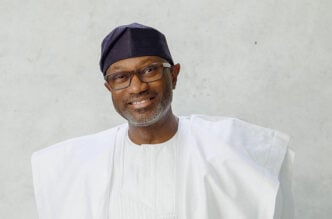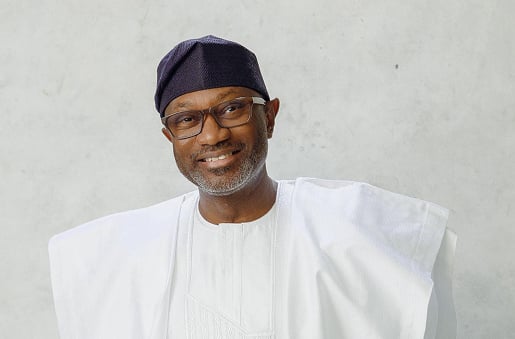BY BEULAH ADEOYE
For decades, Nigeria’s narrative has been dominated by a single, crushing paradox: a nation overflowing with vibrant, intelligent, and ambitious young people, yet suffocated by a systemic inability to provide them with rewarding and meaningful work.
This is not a new story. I recall that whilst I was in the course of my undergraduate law studies, there was an excruciating fear of the unknown future; ‘charge and bail’ lawyers, the chorus sung at the time and the reserve for failed legal careers, we were told. Lawyers hawking their craft in the court premises for daily bread from charging opponents and bailing relatives of would be litigants.
I am grateful for providence that I am done with professional career but never had to fall into this ‘charge and bail’ category, but I recognise my privilege – I am only part of the lucky few. The one percent of the one hundred percent. We are a nation of over 170 million ‘informal’ entrepreneurs and unemployed graduates, a human engine roaring in neutral. This is not merely an economic statistics; it is a crisis of human dignity, a slow erosion of potential, and the single greatest threat to our national security.
Advertisement
The challenge of our time is not just to “create jobs”. It is to cultivate quality employment, work that confers dignity, provides a stable and liveable income, and offers a pathway for growth. We must transition from a narrative of survival to one of prosperity. This treatise is not another lamentation of our challenges, but a blueprint for action. It argues that by reforming our educational foundations, strategically learning from domestic and global successes, and boldly implementing innovative policies, Nigeria can, and must build a future where every citizen has the opportunity to thrive.
The state of unemployment in Nigeria is actually a crisis of quality. The official unemployment figures from our National Bureau of Statistics (NBS) often mask a more terrifying reality. While the headline rate may fluctuate (e.g., 5.3% in Q1 2024), the granular data tells the true story. The highest rates of unemployment are not among the uneducated, but among our educated youth. In the first quarter of 2024, Nigerians with post-secondary education faced a 9.0% unemployment rate, higher than any other educational bracket.
This single unemployment data is a profound indictment. It confirms what every graduate holding a dormant diploma knows: our system is broken. We are spending fortunes to educate a generation for jobs that no longer exist, leaving them to join the ranks of the “Not in Education, Employment, or Training” (NEET) or to seek precarious survival in the informal sector.
Advertisement
This informal economy, which employs over 90% of our workforce, is not the vibrant ecosystem of entrepreneurship we often romanticize. It is, for most, a precarity trap – a world of low wages, zero benefits, no job security, and no path to growth. This is not the “dignity of work.” It is a daily, grinding struggle.
Our failure to create quality employment is not accidental. It is the result of four interconnected, systemic barriers:
Epic education mismatch: Our educational curriculum is largely misaligned with the demands of the 21st-century economy. We continue to graduate millions with theoretical knowledge, while the market screams for technical, digital, creative, and critical-thinking skills. Industry leaders rightly complain that they cannot find skilled local talent, while our graduates remain idle.
Deep infrastructure deficit: Quality jobs do not exist in a vacuum. They require a platform. The crippling lack of stable power, poor logistics, and expensive unreliable internet acts as a “shadow tax” on every businesses. It makes a Nigerian welder uncompetitive against a Chinese counterpart and makes it impossible for a tech hub in Aba to reliably serve a client in Lagos, let alone London.
Advertisement
Capital blockade: For the entrepreneurial, ideas are cheap, but capital is a fortress. Our financial system remains allergic to risk and innovation, demanding collateral that no 23-year-old with a brilliant business plan possesses. We are a nation of brilliant ideas that die in the minds of their creators for lack of a few hundred thousand Naira in seed funding.
Policy chasm: For decades, our national approach to job creation has been a series of disjointed, short-term interventions. We often lack a coherent, long-term, and fiercely protected industrial strategy that identifies and supports high-growth sectors. Policy inconsistency deters the very long-term private investment — both foreign and domestic — that is essential for creating stable, large-scale employment.
Amidst this bleak national picture, green shoots of focused policy are emerging. Oyo state, for example, has demonstrated through local initiatives, what is possible when a sub-national government takes employment seriously. It was ranked by the NBS as the most employment-friendly state in southern Nigeria, with an unemployment rate of approximately 2.0%.
This success is built on a pragmatic, two-pronged approach. First, stabilisation: the state government directly recruited over 22,000 people into its education and other sectors, providing immediate, stable, and dignified public-sector work. Second, future-proofing: the Enterprise Skill Development Programmes was established to train 500 unemployed youths in entrepreneurship across all 33 LGAs.
Advertisement
The Oyo model is a powerful lesson. The public sector hiring provides an immediate economic floor, while the skills program builds the ladder. However, this model has its limitations. The public sector cannot – and should not – be the employer of first resort for all. The challenge, therefore, is scale. Whilst the program is a brilliant pilot, but Nigeria needs to train 500,000, not 500, per LGA. The lesson from Oyo is not just in its specific numbers, but in its demonstration of political will and focused, data-driven action. If Oyo provides the pilot, Rwanda and Singapore provide the blueprint for scale.
The lesson we draw from Rwanda is the power of national vision. Emerging from a history of unimaginable tragedy, Rwanda rebuilt its entire social and economic fabric on a foundation of deliberate, long-term vision. Through its Vision 2020 and new Vision 2050 plans, it identified specific high-growth sectors, ICT, manufacturing, and agro-processing and relentlessly aligned its policy and investments to support them. Through the Rwanda Innovation Fund and structured partnerships with the private sector, the government does not create all the jobs itself; it creates the conditions for the private sector to create them.
Advertisement
In the case of Singapore, there appears to have been an obsession with human capital development. I recall my father, the distinguished Professor Gideon Olajiire Adeoye travelling to Singapore as far back as 1980s, to attend a couple weeks at the Haggai Institute Leadership Training programme. He was then a laboratory technician at the Soils Science Lab. He would later secure a PhD, then go on to become head of department, secretary-general of the Soil and Plant Analytical Laboratory Network for Africa (SPALNA) then headquartered in the International Institute of Tropical Agriculture (IITA) and later professor of agronomy prior to his retirement. He also paid it forward with several of his former students now professors. Singapore’s journey from a third-world port to a first-world powerhouse was fuelled by one resource: its people.
They understood that in a global economy, the only sustainable advantage is a skilled and adaptable workforce. Their “SkillsFuture” programme is a revolutionary model. It is a national movement that provides every citizen with credits for lifelong learning. It tells a 40-year-old factory worker that their skills may become obsolete, but they will not. This creates a tight, dynamic link between education, industry, and the individual, ensuring the labour market demand is always matched by a supply of trained talent.
Advertisement
Nigeria requires a new blueprint, accordingly I will spend some time on a few proposed strategies for the country.
Nigeria does not need to copy these models, but we must learn from them. We must move from fragmented initiatives to a single, integrated national strategy. I propose a five-point plan:
Advertisement
The “SkillsFuture Nigeria” trust fund: Let us create a portable, personal, and government-seeded “Skills Trust Fund” for every Nigerian aged 18-35. This fund, accessible via NIN/BVN, can only be used to pay for accredited courses in high-demand fields: digital skills, advanced artisanship (welding, plumbing, solar installation), and creative industries (animation, sound engineering). This fund can be financed by a 1% “Human Capital Re-investment Levy” on the profits of our most profitable sectors, such as telecommunications and banking.
Re-imagine NYSC as a national entrepreneurship engine: The National Youth Service Corps is a “solution” to a 1970s problem. Let us re-imagine it for 2025. We can create an “Entrepreneurship Stream” where 100,000 corps members annually can opt out of traditional service to enter a one-year business incubation. They would form teams, build business plans, and receive mentorship. At the end of the year, they pitch to a dedicated “NYSC-BOI Seed Fund” for a chance to launch their ventures. We would turn a social program into a powerful economic accelerator.
Incentivise the “Missing Middle” (MSME growth): Our problem is not a lack of entrepreneurs; it is a lack of scaled businesses. We must shift our focus from “starting” new MSMEs to “growing” existing ones. This requires a new policy: “Incentivize the Hire.” A registered small business with 10 employees should get significant, multi-year tax holidays on the condition that it formally hires and grows to 20, 30, or 50 employees, with verifiable pension and health contributions. Our policies must reward growth, not just existence.
Create “Tech & Creative” special economic zones (TCZs): Infrastructure remains our Achilles’ heel. Instead of trying to fix power everywhere at once, let us create oases of hyper-competitiveness. We must establish TCZs in key cities with a guaranteed, non-negotiable contract: 24/7 power, 1Gbps-speed internet, and a one-stop-shop for regulation. This will be a magnet for global Business Process Outsourcing (BPO) contracts, software development firms, and creative post-production work, creating thousands of high-quality, export-oriented jobs for our skilled graduates.
Labour policy reform for the modern world: Our labour laws are archaic. We must create a legal framework for the 21st-century gig economy, allowing for “portable benefits” (pensions, health insurance) that are not tied to a single employer. This would bring security and dignity to millions of informal workers, from the ride-hailing driver to the freelance writer.
The future of Nigeria is not oil. It is not our ports. It is the restless, creative, and unyielding energy of our 100 million-plus young people, and to fail them is to fail the nation. I was privileged to deliver the 7th Convocation lecture of the Chrisland University in Abeokuta, Ogun state last week. This was on the invitation of the Vice Chancellor of the University, the distinguished Professor Oladunni Sola Arulogun, and whilst sharing my personal experience in work and career, I shared the bit where in spite of graduating with a first class honours degree in law from the University of Ibadan and being a qualified chartered accountant, almost an entire year of my life was spent scanning and photocopying files, seven days a week at the head office annexe of the now defunct Oceanic Bank. That was the only task a leading professional services firm had for me at the time. I performed the work with excellence and distinction. I would later become a partner in financial advisory at Deloitte.
Whilst I told the story to the fresh graduates to make a different point, being ‘whatsoever your hand finds to do, do it with all your might’, I also used this illustration to encourage them in the face of the stark Nigerian reality, not to despair when their work life did not immediately match up to their educational and professional qualification within a Nigeria construct.
This is a call to action, not for one group, but for all.
To our young people: Youth agency is the most powerful force in this equation. Do not wait. Seek out and use the available skill-training programmes, from the Beulah Adeoye Foundation Skills Lab in Oyo state to free courses online. Form cooperatives, build collectives, and start solving the problems in your community.
To our communities: The old model of “I-pass-my-neighbour” is a relic. Form business groups, pool your resources, and share machinery or data subscriptions. Local, collective action is a powerful multiplier.
To all citizens: We must change our political conversation. At the next elections, do not ask a candidate for a bag of rice. Ask them for their 5-year credible plan for job creation. Scrutinize it. Debate it. And when they are in office, hold them accountable to it.
Finally, we must reinvent ourselves and continuously develop our skill sets for relevance in creating value in Society. Young people must seek mentorship from accomplished others and learn from their experience. Encouraging our youth for instance using the example of Prof. Arulogun, who started in faculty of education, went on to practice as a speech therapist at the University College Hospital (UCH) Ibadan (putting smiles on the faces of families with children having learning disability or patients recovering from surgery), then forward to become a professor of basic medical sciences, director of the innovation and entrepreneurship in the University of Ibadan and now vice-chancellor at Chrisland University. Talk of continuous innovation, hard work, focus, resilience and personal growth in one lifetime, she exemplifies it all.
We must also support our local businesses. Every naira you spend at a Nigerian-owned tailor, tech startup, or farm is not just a transaction. It is an investment. It is a vote for a job, a vote for dignity, and a vote for the future of our nation. The work is hard, but the path is clear. Let us begin.
Beulah Adeoye is a legal and financial expert with international recognition for his work in forensic accounting, governance, and philanthropy.
Views expressed by contributors are strictly personal and not of TheCable.


